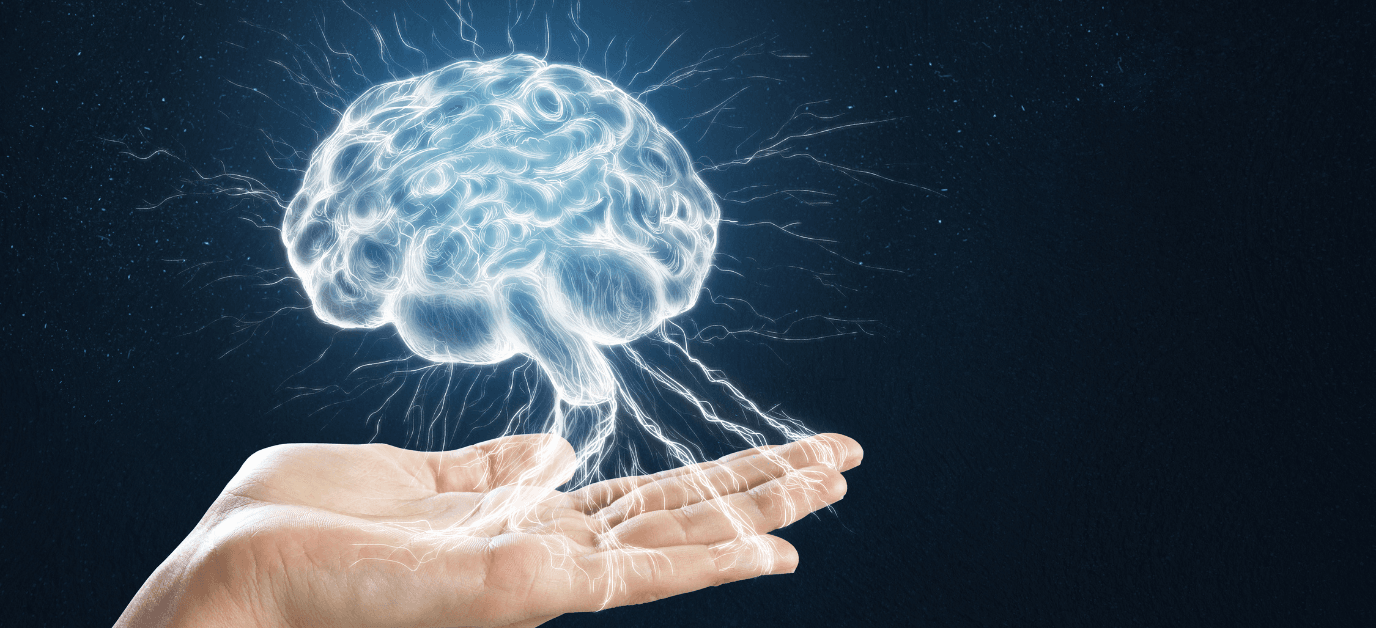

Magnesium and Mood
15.05.2025Recommended products
Verity Pratt
Magnesium is a micro-mineral that has various key roles within the body. Not only does magnesium aid healthy physiological functioning, but it also contributes to normal psychological [1] well-being.
The micro-mineral influences the neurotransmitters in our brains that are involved in regulating our mood. [2] By modulating our neurotransmitters – such as glutamate and serotonin – magnesium helps to balance our emotions and reduce anxiety.

Magnesium also helps to regulate the hypothalamic-pituitary-adrenal (HPA) axis, which has a key role in the release of cortisol – the major stress hormone. Doing so, magnesium aids regulation of the stress response in the body (flight or flight). Because of this, research [3] suggests that magnesium can induce positive changes in mood and cognition, as well as supporting normal responses to stress.
That said, as we utilise magnesium within our responses to stress, if we have prolonged periods of stress, our magnesium levels can become depleted. This can end up in a viscous cycle [4] because stress leads to lower levels of magnesium, but when we are low in magnesium, we are vulnerable to stress [5] and anxiety. This is when supplementing magnesium may be particularly useful. Here, repletion [6] of our magnesium levels may decrease the risk of magnesium deficiency and restore balance.

In addition to stress and anxiety, there is evidence that magnesium may play a role in easing symptoms of premenstrual syndrome (PMS [7]) in females. Particularly symptoms such as mood swings, menstrual pain, and irritability. This is because magnesium supports overall hormone balance, including oestrogen and progesterone levels, as well as aiding muscle relaxation and reduction of inflammation.
Finally, there is evidence [8] that magnesium may help ease depressive symptoms. The micro-mineral handles cellular functioning, including the production and communication of nerve cells (via synapses in the brain). Because of its role in brain functioning, magnesium is associated with mood-regulating hormones like serotonin and dopamine.

Research [9] suggests that depression is associated with deficiency of magnesium. This is because a magnesium deficiency can lead to lower levels of serotonin. Low levels of serotonin are historically linked to depressive symptoms.
There is evidence [10] that supplementing magnesium can therefore help to alleviate depressive symptoms. This research is limited, and more work needs to be done to prove the effectiveness of magnesium supplementation on low mood. However, from what is known, it may be an option in the future.
How much magnesium do we need per day?
According to the NHS [11], the amount of magnesium an adult (aged 19-64) needs per day is 300mg per day for men and 270mg per day for women. This can be achieved through dietary sources and supplementation.

As well as supplementation, it may be useful to consider a combined lifestyle approach to mental health. This can include a healthy diet, proper supplementation, and exercise. It is well-known that exercise positively influences mental health. A large umbrella review [12] of numerous studies has confirmed that exercise is highly beneficial for improving symptoms of depression, anxiety, and stress across a wide range of adult populations.
It is important to note that if you are experiencing symptoms of anxiety, stress, or low mood, you should always consult you GP before introducing supplements.

Sources:
[1] https://www.ncbi.nlm.nih.gov/books/NBK507250/
[2] https://pubmed.ncbi.nlm.nih.gov/38213402/
[3] https://pmc.ncbi.nlm.nih.gov/articles/PMC7352515/
[4] https://pmc.ncbi.nlm.nih.gov/articles/PMC7761127/
[5] https://www.ncbi.nlm.nih.gov/books/NBK507250/
[6]https://pmc.ncbi.nlm.nih.gov/articles/PMC7761127/#:~:text=Numerous%20studies%2C%20both%20in%20pre%2Dclinical%20and%20clinical,and%20neurotransmission%20of%20the%20normal%20stress%20response.&text=A%20growing%20body%20of%20evidence%20also%20suggests,chronic%20stress%20may%20cause%20magnesium%20loss/deficiency%20[43].
[7] https://pmc.ncbi.nlm.nih.gov/articles/PMC3208934/
[8]https://www.sciencedirect.com/science/article/abs/pii/S0899900716302441#:~:text=Conclusion,outcomes%20and%20thus%20are%20recommended.
[9]https://www.ncbi.nlm.nih.gov/books/NBK507265/#:~:text=Magnesium%20deficiency%20causes%20N%2Dmethyl,for%20its%20prevention%20and%20treatment.
[10] https://pmc.ncbi.nlm.nih.gov/articles/PMC7352515/
[11] https://www.nhs.uk/conditions/vitamins-and-minerals/others/
[12] https://bjsm.bmj.com/content/57/18/1203




